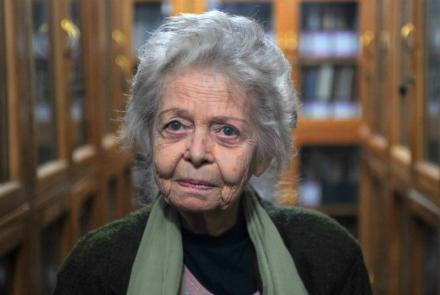Since the beginning of the year, Afghanistan has lost a generation of writers, poets, historians and many other literature figures. It is safe to say, Afghanistan lost a generation of gems. This article tries to pay a homage to them.
Nancy Hatch Dupree, an American historian, and archaeologist who spent the better half of her life preserving the history of Afghanistan died at the age of 90 due to illness here in Kabul on September 10.
The Afghanistan Center at Kabul University (ACKU) issued a “statement on the death of Nancy Hatch Dupree”, it should have been titled as “Obituary”.
The statement read: “With deep sadness, we mark the loss of the honorary “grandmother of Afghanistan” and stand in homage to a woman of exemplary grace, dedication, humor and humanity. Nancy Hatch Dupree loved to describe herself as an ancient monument of Afghanistan, and never suffered fools gladly. Even in her last hours, as she struggled to fight the illness that eventually took her life, her concern was the slides she needed to finish and exhibit. Departing this world, she leaves behind a rich legacy of service and dedication to the two great loves of her life: her second husband Louis, and her adopted home Afghanistan”.
On Monday, September 11, Saaduddin Shpoon, the famous author, and poet of Afghanistan died at the age of 84 in Virginia, the United States.
Afghans lost two great personalities in two nights in two different countries, both passed away in faraway lands other than their birthplace.
“Shpoon (shepherd in Pashtu), was a realistic shepherd of Pashtu fiction literature”, and a Pashtu poet and the author of Dardabad (The City of Pain).
President Mohammad Ashraf Ghani said Saad Shpoon and he were friends and promised to bring the late Shpoon’s body home to Afghanistan for burial at his personal expense.
But, according to Bakhtiar Talash, the body of the late Shpoon was received at an inconspicuous ceremony at the Hamid Karzai International Airport.
“Neither professors from Kabul University nor Persian writers were present at the airport. Zaher Shikeb, the head communication (officer) at the Afghanistan Academy of Sciences, was there to receive Saad Sphoon’s body on the bases of friendship”, complained Talash.
This was not the first time that the enthusiastic president of the country showed interest in reviving memories of writers and historians at his personal expense. He had previously promised to build a memorial and mint a medal in honor of Faiz Mohammad Katib, the distinguished Afghan historian.
One wonders what the president is earning from all of this; spending his personal money?
This year Afghanistan lost many writers, novelists, historians, and poets. The Persian New Year (Nowruz) started on 20 March. Just a few days after Nowruz leading Afghan satirist, Jalal Noorani, passed away in Kabul at the age of 69.
I had spent Nowruz with him in a bookstore. He fondly remembered his family and wife who live in Sydney, Australia. He wished to see them for the last time.
Jalal Noorani who had translated several works from Russian was an employee at the Ministry of Culture and Information for several years and also worked as a journalist. His magnum opus called “Art of Scoffing” - in 687 pages - earned him fame. His work on letters is also worth praising for those who wish to look into letter writing in Afghanistan.
He was found dead on the floor of Maiwand publishing press. Most disheartening was that there were not more than two dozen at his funeral.
Just one month later, on May 7, Afif Bakhtari a poet died at a much younger age of 55 due to an apparent overdose in Mazar-e-Sharif, Balk province.
He was a humble poet and simple spoken man.
“How can I call myself the father of world’s poetry, I am married; have fathered two, three children”, notes one of his poems.
While the same day, Abdul Ghafoor Pairoz, a young promising writer and a strong critic of fundamentalism was shot dead on the doorstep of his home by armed assailants in Kandahar province.
Dr. Akram Osman, a leading Afghan novelist, researcher died on Thursday 11 August in Sweden where he was buried. His last novel was submitted for reprinting last month in Kabul as a tribute to his work. On the occasion of the book review, his novel was reviewed by Kawa Jobran, a poet, novelist and a Ph.D. candidate in Persian literature. He stated that Dr. Akram Osman was not only a writer, but remained an Afghan diplomat for several years.
“His last work shows a little weakness due to old age perhaps and he repeats himself throughout the novel”, said Jobran.
Previously, on January 7, Afghan historian Dr. Hassan Kakar passed away in California at the age of 88. His work on Afghan history and socio-politics remains University text in Afghanistan. His death is considered a great loss to historians and fans.
As the last point, while some writers and authors died due to natural causes or overdose or were killed by terrorists and insurgents in Afghanistan, younger writers are leaving for foreign countries either to pursue higher education opportunities, careers or due to fear for their lives.
It is futile to name those as they would appreciate privacy. The readers, supporters, and fans of literature and writers should show more appreciation to what they are left with, in Afghanistan.

